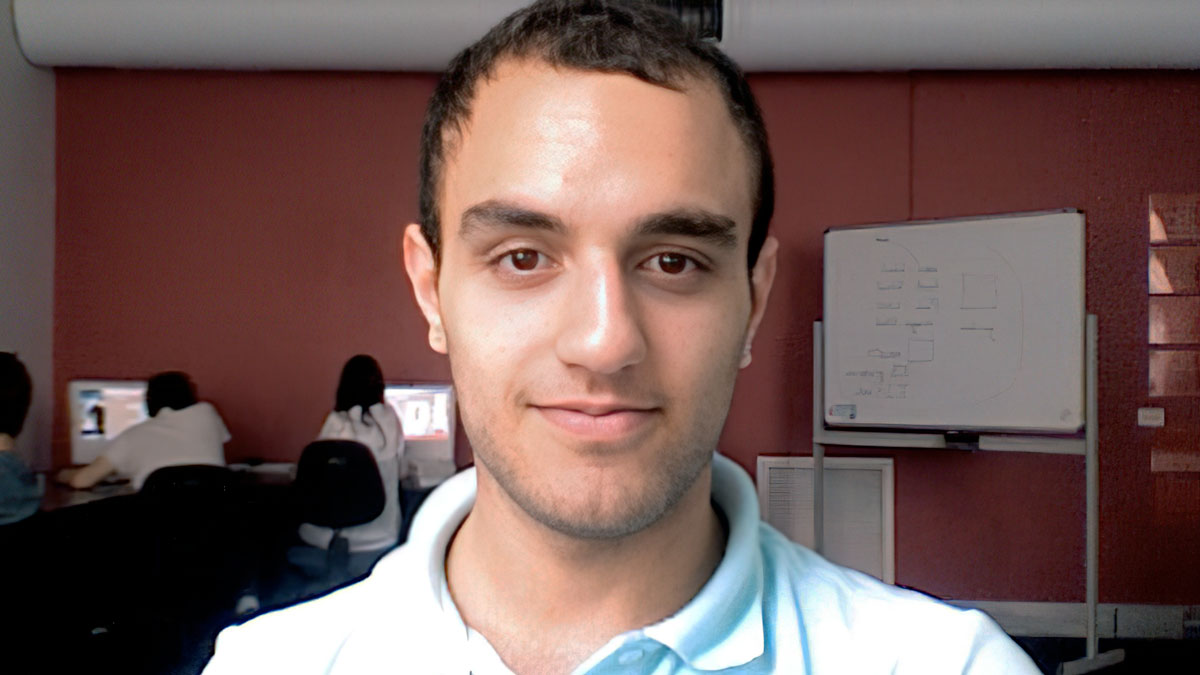Confessions of a Control Freak – Part 3: A Rebel Yell
Confessions of a Control Freak is a memoir blog series exploring the impact of Obsessive Compulsive Personality Disorder, its origins, and the rocky path to recovery. Names and identifying details have been changed to protect the privacy of all featured individuals. Subscribe to receive all future posts. More about OCPD here.
I
“About this holiday,” a friend began via instant message, “I’ve changed my mind. I’m not really sure if you should join us.”
This friend—Mig, we’ll call her—and I had been planning to spend a few days vacationing with a few others in the neighboring city of Wollongong. This sudden reversal threw all my plans into disarray.
Mig’s comment was the first indication we’d had some kind of miscommunication, the nature of which I didn’t yet understand.
“Because the whole point of this trip is to chillax, you know?” Mig went on to say. “And I’m worried you might mess with the vibe.”
This wasn’t the first time someone had performed a heel turn in my company. In fact, it was a pattern that had resulted in what few friends I had vanishing, often without explanation.
Something about my presence seemed to unsettle people, and I suspect it had something to do with the fact that I had a rather dry sense of humor, and was reliably direct and to the point.
This was a quality that both endeared me to some while setting others on a swift exit trajectory.
Though it would be many years before I received a diagnosis, my brutal honesty was in fact closely tied to the fact I was on the autism spectrum.
Autism would also in part explain my rigid approach to life and my perception there was only one “right way” of doing things.
My Obsessive Compulsive Personality Disorder (OCPD) helped push this to another level, the most obvious example of this being my bossy domination of shared creative endeavors.
Suffice to say, when those in my life turned on me over my differences, my standard response was to raise two figurative fingers.
In Mig’s case, this involved me logging off the messenger app without the courtesy of a farewell.
When Mig later apologized for their words and renewed her invitation to join her on the holiday, I didn’t graciously accept.
Rather, I declined, citing my finances, all-too content to nurse my grievances.

II
The problem with declaring one’s self the eminent enforcer of rules is that it inevitably culminates in a one-man dictatorship.
When challenged, one feels compelled to silence critics, impose curfews, and enforce martial law.
Yet my tendency to claim and never cede the moral high ground would almost always land me in steaming hot water.
While producing my final college project—the quixotic piece set in both present-day and 80s Germany—I clashed with my first meeting with a college professor.
“That doesn’t look like Berlin,” was Dr. Javers’ first remark upon seeing a rough cut. “It’s obvious it’s been filmed in Australia.”
The scene in question had been staged in a pine grove and featured a Stasi officer—a member of the German Democratic Republic’s secret police—shooting an informant.
It was to serve as the film’s dramatic lynchpin, the coathanger upon which I would hang the thin plot of my spin on the mumblecore genre.
On that note, if there was anything Dr. Javers was going to criticize, you’d think it would be the long sequences in which characters monologued at one another.
Instead, his words merely struck me as a rather lazy attempt to undermine our efforts. Didn’t he see the nobility of our intentions? The rich thematic potential of exploring life after a surveillance state?
“We’re happy with the scene, actually,” I said, knowing full well I was probably coming across as defensive.
“The location was the only one we had access to. Anyway, what are you suggesting we do? Throw out all of our footage and start from scratch?”
This was, I went on to explain, a no-budget student production. The only places we could film were at school or a handful of public locations. It wasn’t exactly like we had a ton of options.
Dr. Javers stiffened, and instead of responding to my questions directly, spent the remainder of the meeting addressing everyone else in the room but me.
In the weeks that followed, Dr. Javers failed to show up for production meetings and stopped returning emails and calls.
Then, finally, in the final week of school, my producer forwarded some backchannel communication she’d had with Dr. Javers.
In it, the two had spoken with casual friendliness, neglecting to mention me, as if I—the visionary director—was an inconvenient fact neither wanted to acknowledge.
I was steamed. If my mother had taught me anything, it was never to take an insult lying down—least of all from people in positions of authority.
Thus I set myself to composing the most passive-aggressive response I could muster, asking—no, demanding—Dr. Javers CC me in all future correspondence.
Dr. Javers’ clap back appeared in my inbox mere minutes later.
“Hardly the way you should be speaking to a staff member, Essy. Expect your communication scores to be docked!”
Rage took possession of me then. Just who was this tenured sellout with next-to-no filmmaking experience to criticize me, auteur filmmaker ascendant?
A wiser move would have been to cut my losses there; maybe even go over Dr. Javers’ head, if needed, and pleaded his defense to someone further up the food chain.
Instead, I let my fingers perform a furious tap dance over my keyboard.
“Wow,” I typed. “I was really…expecting more professional conduct…from you, Dr. Javers.”
My cursor moved to the “send” button, then stopped. As intent as I was unleashing my indignation upon this hack, part of me knew that a cooler head would prevail.
So I gave myself ample time to fully consider my countermove and the potential fallout. This amounted to approximately 30 seconds.
But within minutes of sending the email, I was having second thoughts. By replying, I had only stoked the fire.
What would I do if Dr. Javers rose to the challenge? I couldn’t possibly let him have the final say in this battle of wills.
The only sensible thing to do now, then, was to block the professor’s email address, and therefore the possibility of a reply.
An hour later, remembering I was meaning to migrate to a different email host, I took the nuclear option and deleted my email account entirely.
In terms of severing contact completely, deleting one’s account was about as final a method as they comeno more final a method.
And yet for all my attempts at creating closure, this little exchange with Dr. Javers had left me feeling somehow dirty.
Underneath my anger, there was a bitter suspicion that I myself might be culpable of some wrongdoing. One I had tasted when Mig had uninvited me, and when my filmmaking company Nia suddenly ceased contact.
III
My willingness to steamroll over obstacles was as much a matter of determination as it was inflexibility.
While my peers coasted through their undergraduate programs, spending their downtime partying or going to the beach, I put all of my time, effort, and money into teaching myself the craft.
Given this investment, I felt justified in fighting for my success…even if my definition of “success” verged on questionable.
So what if I alienated people in the course of following my own north star?
For as long as I could remember, people had seemed never quite “got” me”. My intentions were often mistaken and my actions subject to criticism, so much so that I felt trapped in an ever-deepening hole of futility.
Thus in my teen years, I decided to defy the aphorism and become the man who was the island.
My inspiration was the eponymous protagonist of Charlotte Bronte’s classic “Jane Eyre”, a woman who seemed entirely sure of her purpose, and resilient in the face of opposition.
“I care for myself,” went Jane’s declaration. “The more solitary, the more friendless, the more unsustained I am, the more I will respect myself.”
I took Jane’s proclamation as an endorsement. Others might see me as self-righteous or inflexible, but to me, these were qualities born of strength.

IV
In reality, they were born of low self-worth. Deeming the world to be a threatening place, I wore them less as a badge of honor than a protective carapace.
When others attacked this carapace, they were in effect attacking me. Point out my shortcomings, and you were like to receive a rebel yell in response.
And so I became a stranger to my blind spots, and despite my best efforts, continued to trip over my own feet.
When I was not trampling the feelings of friends, I was offending would-be allies, trying desperately to set others right—even when I myself was in the wrong.
Once, on a flight home to visit my parents, I noticed the man next to me had put the armrest down prior to take-off.
“Excuse me,” I began in a brittle voice, “but I think the armrest is supposed to be up.”
The man, a brawny Asian man who could very well have been a fitness instructor, continued to look down at the inflight magazine he was reading.
“Actually, it should be down,” he replied.
“Well you’re wrong,” I retorted, barely stopping myself from saying more.
Brawny acted as if he hadn’t heard me, and my face burned with anger as I waited for the pre-flight safety demonstration that would surely vindicate me.
Attendants donned life jackets and took their positions in the aisle. An attendant chirped instructions over the P.A. system.
“In the interests of all passenger’s safety all seatbacks should be stowed prior to take off, and all armrests placed down.”
And suddenly it was not anger but shame that scalded my cheeks. My gaze, formerly fixed on my seatback in front of me, slunk to the floor.
Brawny would have been well within his rights to smirk, and yet for all his feigned indifference, I knew—I knew—that deep down, my enemy was gloating.
I spent the rest of the flight contemplating the decidedly un-petty ways I might exact my vengeance.
There was always the “accidental” coffee spill or elbow to the face when getting up to use the toilet, but those verged on blatant.
By the way Brawny failed to glance in my direction, it was clear that our little tiff did not occupy him in the same obsessive way it did me.
When, at the end of the flight, he hoisted his tote bag out of the overhead locker in preparation to leave, I stared daggers at his back.
There, I thought, run away, like the coward you are.
And savoring my unearned sense of triumph, I followed.
Confessions of a Control Freak continues with Part 4: “A flight from shame”.

Essy Knopf is a therapist who likes to explore what it means to be neurodivergent and queer. Subscribe to get all new posts sent directly to your inbox.
© 2025 Ehsan "Essy" Knopf. Any views or opinions represented in this blog are personal and belong solely to the blog owner and do not represent those of people, institutions or organizations that the owner may or may not be associated with in professional or personal capacity, unless explicitly stated. All content found on the EssyKnopf.com website and affiliated social media accounts were created for informational purposes only and should not be treated as a substitute for the advice of qualified medical or mental health professionals. Always follow the advice of your designated provider.


